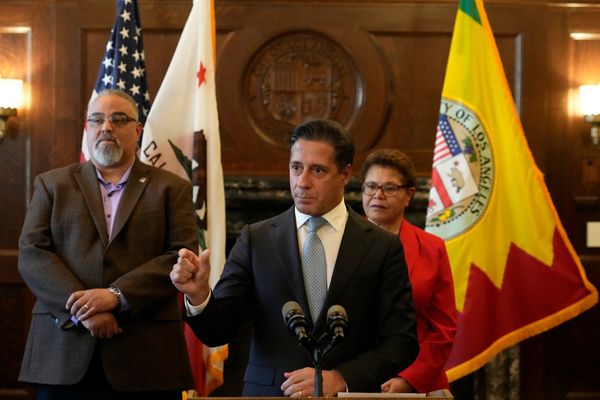
Because the continued federal prohibition of marijuana makes banks and payment processors leery of serving state-licensed cannabis suppliers, many of those businesses rely heavily on cash, which exposes them to a heightened risk of robbery. As a new federal lawsuit shows, that danger is not limited to garden-variety criminals. It includes cops who use federal civil forfeiture laws to steal money earned by state-legal marijuana businesses.
Five times since last May, sheriff's deputies in Kansas and California have stopped armored cars operated by Empyreal Logistics, a Pennsylvania-based company that serves marijuana businesses and financial institutions that work with them. The cops made off with cash after three of those stops, seizing a total of $1.2 million, but did not issue any citations or file any criminal charges, which are not necessary to confiscate property through civil forfeiture. That process allows police to pad their budgets by seizing assets they allege are connected to criminal activity, even when the owner is never charged, let alone convicted.
Empyreal, which is represented by the Institute for Justice, argues that the seizure of its clients' money violated state law, federal law, and the U.S. Constitution. In a complaint it filed last Friday in the U.S. District Court for the Central District of California, Empyreal says it is "entitled to protection from highway robberies, regardless of whether they are conducted by criminals or by the Sheriff and federal law-enforcement agencies acting under color of law."
On May 17, Dickinson County Sheriff's Deputy Kalen Robinson pulled over one of Empyreal's vans on Interstate 70 in Kansas, ostensibly because the Colorado tag number was partially obstructed by the license plate frame. Robinson grilled the driver, who explained that she planned to pick up cash from licensed medical marijuana dispensaries in Kansas City, Missouri, the next day, then take it to a credit union in Colorado, which would entail traveling through Kansas again on the same highway. Robinson let the driver proceed on her way without issuing a citation, but the federal Drug Enforcement Administration (DEA) kept an eye on the van the following morning as it visited the Missouri dispensaries.
Later that day, Robinson stopped the van again as it traveled west on Interstate 70, seizing more than $165,000 in cash from its vault. In September, the Justice Department filed a civil forfeiture complaint seeking to keep the money. If the government prevails, the Dickinson County Sheriff's Department will get up to 80 percent of the loot under the Justice Department's "equitable sharing" program.
In the affidavit supporting the federal forfeiture complaint, DEA Special Agent Bryson Wheeler noted that "marijuana is a controlled substance and illegal under both federal and Kansas state law." But Empyreal argues that the DEA's participation in this scheme ran afoul of the Rohrabacher-Blumenauer Amendment, a spending rider that bars the Justice Department (which includes the DEA and the FBI) from using any of its funds to interfere with the implementation of state laws authorizing the medical use of marijuana. Because the DEA violated that restriction, the company says, it also violated the Fourth Amendment's ban on unreasonable searches and seizures. And because the seizure was motivated by the prospect of financial gain, the lawsuit says, it violated the Fifth Amendment's guarantee of due process.
The stops and seizures in California raise additional legal issues, because that state, unlike Kansas, allows the sale of marijuana for medical or recreational use. It also explicitly protects companies like Empyreal from harassment by local or state law enforcement agencies. A 2020 law says a business that "transports cash or financial instruments, or provides other financial services does not commit a crime under any California law…solely by virtue of the fact that the person receiving the benefit of any of those services engages in commercial cannabis activity as a licensee pursuant to this division." Despite that law, San Bernardino County sheriff's deputies stopped Empyreal vans three times in November, December, and January, seizing more than $1 million.
On November 16, Sheriff's Deputy Jonathan Franco pulled over one of the company's vehicles, supposedly because it was following a tractor-trailer truck too closely. Like Robinson, Franco did not issue any citations. But after the driver told him the van was carrying cash, the lawsuit says, Franco "asked many questions about the nature of Empyreal's business." Even though it should have been clear that Empyreal was not violating any state laws, the cops seized about $700,000. The sheriff's office later told the company's lawyer the money "was transferred to the FBI for civil forfeiture."
On December 9, Empyreal says, the same deputies pulled over the same vehicle, driven by the same employee, ostensibly because he "slightly exceeded the speed limit and prematurely activated his turn signal." But once again, no citation was issued. According to the lawsuit, "the driver's operation of the Empyreal vehicle was completely lawful." The company says "the deputies had planned the stop in advance and would have pulled over the driver and the Empyreal vehicle regardless of how carefully or lawfully it was driven."
The deputies claimed a drug-sniffing dog alerted to the van, which Empyreal says also is not true: "Video footage from the vehicle does not show the dog alert on the vehicle. Instead, it shows the dog is barely interested in the vehicle."
This time the cops seized about $350,000. The deputies, who were audibly excited about the $700,000 haul, were somewhat disappointed by the relatively small size of the second seizure. Based on an audio recording by the van's security system, the lawsuit describes this exchange: "One of the deputies said, 'That's it?' and chuckled. He then said: 'You set the bar too high.' When another deputy remarked that he thought they'd get 'a million or two,' the [first] deputy responded, 'At least we got over a million'"—apparently referring to the combined take from the two seizures. The FBI later told Empyreal's lawyer it had also taken possession of the money seized on December 9, pending federal forfeiture proceedings.
From San Bernardino County Sheriff Shannon Dicus' perspective, involving the feds has clear advantages. Money earned by state-legal marijuana businesses is not subject to forfeiture under California law. Even if it were, law enforcement agencies would be entitled to just 65 percent of the proceeds, compared to as much as 80 percent under federal law. And for cash forfeitures involving $40,000 or more, California requires "clear and convincing evidence," while federal law says "a preponderance of the evidence" is good enough.
Recognizing the allure of those terms, California legislators have prohibited federal "adoption" of seizures initiated by state or local law enforcement agencies. But that restriction does not cover seizures by anti-drug task forces that include federal as well as local agencies. Empyreal suspects the California stops involved such a task force: the Inland Regional Narcotics Enforcement Team.
Federal participation still implicates the Rohrabacher-Blumenauer Amendment. Empyreal says three of the four businesses whose money it was transporting on November 16 had medical marijuana licenses, while all of the money seized on December 9 came from businesses with such licenses. The company also argues that Dicus, one of the defendants named in the lawsuit, exceeded his own authority by allowing or instructing his deputies to stop, search, and rob the company's vans without any evidence of state crimes.
The third California stop sheds some light on that strategy. On January 6, the lawsuit says, San Bernardino County sheriff's deputies stopped an Empyreal driver who was "picking up an order of rolled coin boxes from Empyreal's vendor, which happens to be located in San Bernardino County, in order to replenish its rolled coin supply." After the deputies realized that the coins had nothing to do with cannabis, they decided not to seize them. "When the Empyreal driver asked a deputy why Empyreal vehicles were being stopped so frequently," the company says, "the deputy told him it was 'political' but declined to elaborate."
Whether that response alluded to Dicus' own motivation or a federal agenda, it certainly does not sound like a reason that would pass muster under the Fourth Amendment. Empyreal argues that "pretextual traffic stops" aimed at supplementing police budgets rather than enforcing state law cannot qualify as "reasonable."
In addition to the cannabis industry, Empyreal, which operates in 28 states and has more than 200 employees, serves traditional businesses such as restaurants and convenience stores. Empyreal says it and its clients "operate in full compliance with
applicable state cannabis laws and all applicable federal and state money laundering compliance requirements," including the relevant provisions of the Bank Secrecy Act and marijuana-specific guidance from the Financial Crimes Enforcement Network.
"Empyreal is proud to provide a professional and secure solution for our customers to safely transport their deposits into the financial system, which increases transparency and makes communities safer by getting cash off the streets," CEO Deirdra O'Gorman says in a press release. "Because both we and our clients operate completely within the law, we have never had problems until recently. To continue serving our clients, we have no choice but to stand up for our constitutional rights."
Empyreal has reimbursed its clients for the money seized in Kansas and California, so it is already out $1.2 million, along with the legal cost of contesting the forfeitures. The company says it is trying to avoid further trouble by routing money from marijuana businesses around Kansas and San Bernardino County, which leads to needless extra travel. Empyreal has suspended plans for a "vault and currency processing facility" in Dicus' jurisdiction. It says it had already invested $100,000 in that project and continues to pay $21,000 a month in rent and utilities for the building. Empyreal says the threat of continued harassment and seizures has cost it clients and endangered the expansion of its business, especially in California.
"What is happening to Empyreal potently illustrates why we call civil forfeiture 'policing for profit,'" says Institute for Justice attorney Kirby Thomas West. "Law enforcement is trying to take more than a million dollars without charging anyone with a crime. That is absurd and deeply unconstitutional. It is yet another reason why lawmakers need to eliminate civil forfeiture altogether."
The post Kansas and California Cops Used Civil Forfeiture to Stage Armored Car Heists, Stealing Money Earned by Licensed Marijuana Businesses appeared first on Reason.com.







